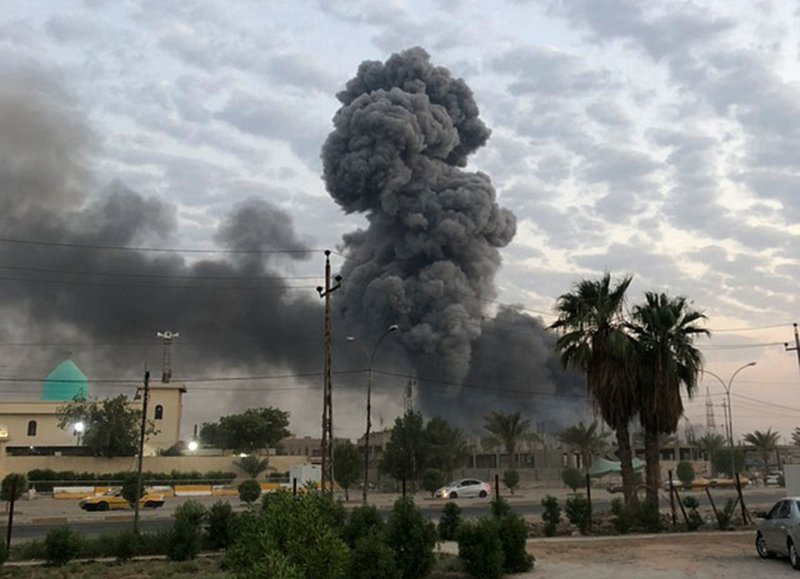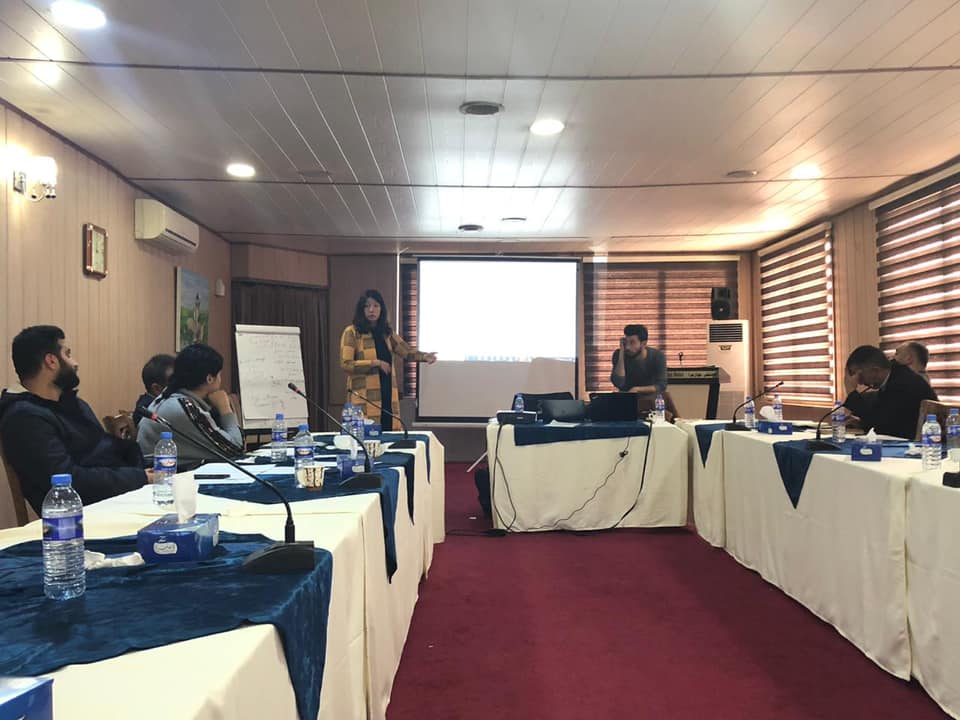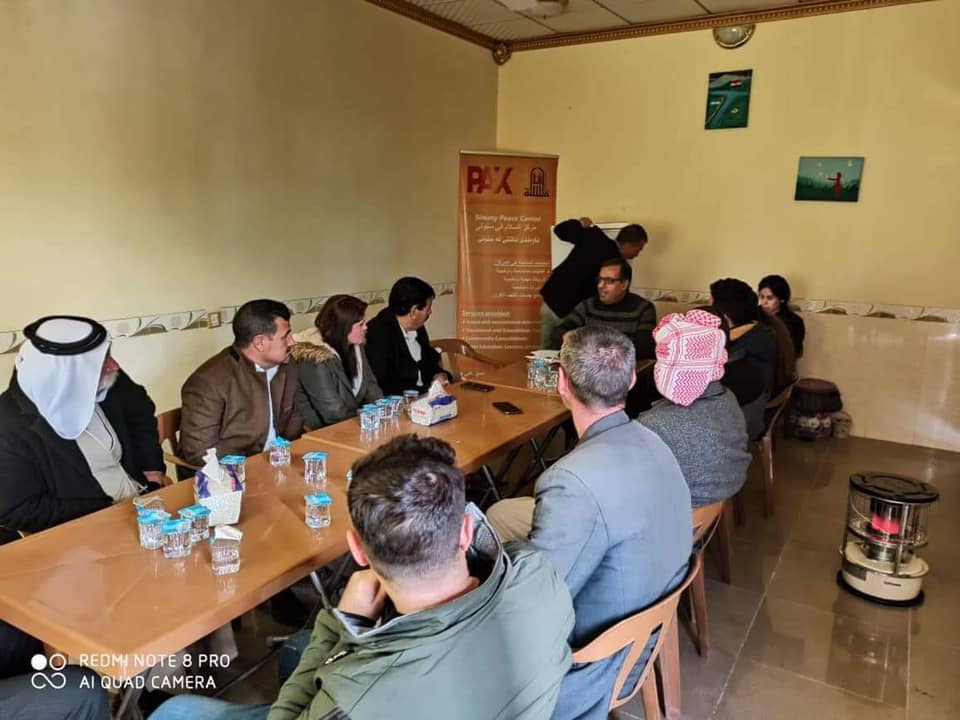Over the first half of 2020, Catalystas’ founder Beatrice Maneshi provided support to Stichting PAX, a Dutch NGO working to protect civilians against acts of war, end armed violence, and build a just peace. Looking to adapt successful peacebuilding programs implemented by PAX in Bosnia, Beatrice conducted a scoping mission, baseline assessment, and program planning preparations to lay the foundation for PAX programming in Ninawa, Iraq. PAX commissioned the project to adapt their existing Theory of Change and programs around storytelling as a vehicle for transitional justice in the Iraqi context, aimed at supporting communities formerly occupied by ISIS. In the process of the project, Catalystas examined the current state of communication between and among the communities present, the existing relationships and mechanisms in place, and opportunities for potential future interventions.
What was meant to be a look at the means of storytelling and grievance resolution mechanisms in the communities of Zummar, Sinjar, Bashiqa, Tel Kaif, and Tal Afar turned into a great deal more.

Destabalization and Delay: Regional tension between the US and Iran often spills over into Iraq, where our team often has to find new, innovative, or alternative ways to conduct our humanitarian and development work
The onset of this project was fraught with difficulties. However, the challenges posed the perfect opportunity to conduct a trial run of adapted research approaches, now more crucial than ever as the need for Covid-sensitive project planning and implementation continues to grow. January 2020 saw clashes between Iranian and US military forces on Iraqi soil – the Iranian military bombed parts of the US military base in Erbil in response to the assassination of General Qasem Soleimani, the highest-ranking Iranian Special Forces General, who had been traveling in Baghdad one week prior. The sudden destabilization of an already precarious situation in the region resulted in a one-month delay to the start of the research project. This delay allowed Beatrice to adapt the mission to overcome the second major hurdle: lack of access. As of November 2019, the Iraqi Government blocked all access to Ninawa for foreigners not registered with the Department of Non-Governmental Organizations (DNGO). Throughout the project duration and to this day, the DNGO is not accepting new organizations or individuals to its approved list. As neither Beatrice nor PAX – based in Erbil, but not yet registered in greater Iraq, including Ninawa – had already been approved by the DNGO, this presented a major challenge with regard to data collection and field visits.
In order to adapt the approach of the scoping mission, Beatrice and the Catalystas team hired two local Iraqi researchers from Ninawa. Following an assessment of research capacity and sensitivity to communities with experiences of trauma, Catalystas chose a female researcher with Yezidi heritage, and a male researcher with Arab heritage in order to complete the team and ensure access to as many communities as possible. With the combined insights of the new local researchers and lessons learned from our past experiences in Iraq, Beatrice designed and delivered a two-day rapid training to PAX’s local partner organizations as well as community representatives of the Local Peace Committees active in the locations of the study. The training covered the principles of ‘do no harm’, guidance on best practices for conducting interviews and focus groups, and provided insights and overviews of the questionnaires, surveys, and trauma assessments to be disseminated and collected during research.

Beatrice providing a customized 2-day training to local partners
Following the training, Beatrice worked directly with the local team as well as relevant partner staff to conduct a 21-day data collection period. Due to travel restrictions and DNGO requirements, Beatrice stayed in Erbil, where she triangulated and analyzed the data coming in from all of the team members in the field. Working together with the team, she undertook daily data compressions and adjusted collection methods as needed in order to ensure the highest quality of data capture possible across the diverse population contained in the study.
At the end of the data collection period in March, Beatrice returned to the Netherlands with a wealth of data from a wide variety of ethnoreligious perspectives across age and gender in each study location. Analyzing the data resulted in the generation of over 60 specific cross-cutting data points across each of the six locations in the study. In order to present this vast amount of data in a coherent and comprehensive way, the Catalystas team designed the final report with a breakdown of chapters by location, clear statistical analysis, and data visualizations for the most relevant points per location. Each chapter included an overall analysis and brief historical context, an examination of community leadership and existing bonds of trust, perceptions of trauma correlated to gender and age, storytelling and potential avenues for interventions through self-expression, and area-specific recommendations.
Throughout the course of this research, and in designing specific recommendations and potential future interventions for PAX, Catalystas focused on the major challenges and opportunities identified in the Ninawa Governorate when it comes to working with local communities in the post-ISIS context.

FGD in Iraq on behalf of Catalystas Consulting Study for PAX
This project and the baseline research involved has been presented to PAX as a first step towards developing their future interventions. It has also provided Catalystas with extensive insights into the current needs of communities in post-ISIS Ninawa, moving our research on countering violent extremism through a feminst lens another step forward by furthering our understanding of the essential roles that economics and mental health play in destabilized environments. Catalystas is dedicated to helping organizations cultivate a stable environment in Ninawa as well as other conflict-affected areas, and will continue to work towards countering the inertia of these endless cycles of violence set off by war and conflict.

Catalystas Consulting, Lange Voorhout 43, 2514 EC Den Haag, The Netherlands
© Catalystas Consulting. All rights reserved. Privacy and Policy
An Iranian-American with more than ten years of experience in international relations, economic development, and political empowerment, Beatrice is heavily invested in making the world a better place. Her work spans multiple regions of the world, often including high-risk environments, and her clients include non-governmental organizations, governmental bodies, and small-to-medium–sized corporations throughout the US, EU, Middle East, and Sub-Saharan Africa.
Originally focused on the areas of economic development, security, and disarmament, Beatrice turned to the humanitarian field, where she has expanded her expertise to include international security policy, gender equality, and innovation planning. She is a highly skilled grant writer, program designer, auditor, and capacity and impact assessor, as well as an authority on client and donor relations and ethical corporate engagement strategy.
Her personal and professional interests come together in the use of technology and data to provide solutions and insight into human rights, higher education, sexual reproductive rights, and environmental preservation.
We built Lysta as an answer to one of our own problems: the need to quickly assemble teams of experts across various subject matter, geographic, linguistic, and thematic areas for projects and proposals as they arise. We quickly realized that we were not the only ones facing this challenge! With the speed that development projects require hiring, turnaround, and technical insights, we see first hand how helpful it is to have a ready-made database of vetted experts to call on.
For existing and potential Clients, you can access all consultant full profiles by signing up here as a client for free.
For consultants, adding your profile to Lysta means jumping to the top of the list for our clients in recruitment processes. We do the heavy lifting: the CV reviews, interviews, vetting, and personnel management; so when our clients come to us, they know they’re hiring someone they can trust to deliver high quality, timely results. Click here to add your profile for review.
We’re proud to be a link in the chain that connects the best of the best – don’t hesitate to reach out and see how you can put Lysta to work for you!